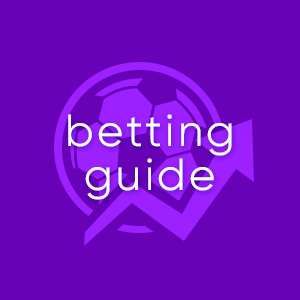Here’s a clear, user-first guide on how to gamble safely with TonyBet and beyond. You’ll see simple rules, practical tools, and where to get help if you need it. This guide offers online tips and plain definitions. It’s for informational purposes only and shouldn’t be taken as medical, financial, or legal advice.
What Is Responsible Gambling?
Responsible gambling means using safe gambling practices that keep betting fun and within your budget. You plan your stake, set time and money caps, and accept risk. You don’t chase losses. A responsible online casino supports you with deposit caps, time-outs, reality checks, and self-exclusion. If you came here asking “what is responsible gaming,” this is the definition in plain words: choose a responsible online gambling setup, follow your rules, and stop when emotion rises.
Signs You’re Losing Control While Betting
Watch for these early flags. They point to risk before damage grows.
- You keep raising stakes after losses.
- You hide betting from family.
- You borrow to bet.
- You miss work or sleep because of a game.
- Your mood swings with the odds board.
- You ignore your limits or remove them.
- You rely on tips or “systems” to fix the holes.
If two or more fit, pause. Use self-exclusion or talk to a pro.
Global Best Practices for Responsible Betting
The industry is moving toward clearer tools, stronger code standards, and better awareness. Regulators push compliance. Operators improve software and UX. Advertising rules tighten. Affiliates now label promos and add a disclaimer. Conference panels share what works: default limits, friction to raise caps, and fast help routes.
UKGC (UK Gambling Commission) Guidelines
The UK model pushes “safer gambling by default.” Strong ID checks. Source-of-funds where needed. Cooling-off periods. Clear reality checks. Strict advertising rules and a social responsibility code. Operators must show tools before the first bet. That’s the bar for compliance.
Australia’s Safer Gambling Campaigns
National messages focus on “set a budget, stick to it.” Banks add card blocks. States run helplines and venue signage. Online brands must show “gamble responsibly” disclaimers and a route to counseling. Campaigns target binge patterns, not just frequency.
Canada’s Player Education and Self-Exclusion Options
At provincially regulated sites list tools up front: deposit caps, time-outs, and province-wide self-exclusion via iGaming channels. Brands, including TonyBet, surface controls in account settings. Player education hubs explain gambling limits, variance, and myths. Clear policy pages matter: easy to find, easy to use.
U.S. State-Based Betting Controls and Tools
States set their own frameworks. Common features: hard deposit limit menus, cool-offs, wager history exports, and statewide self-exclusion lists. Many states push awareness and label ads with help lines. Operators add “reality checks” and tool prompts before you place a bet.
Setting Smart Limits: Daily, Weekly, and Monthly
Pick numbers you can live with when they hit zero. Use three layers: daily for impulse control, weekly for rhythm, monthly for the big picture. Set lower by default. Add friction to raise limits (cooling-off). Track total spend across casinos and casino apps. Treat bonuses like marketing, not a reason to push limits. Set a clean code for yourself: one budget, one wallet, zero chasing.
Time Management in Betting
Time creep is real. Put betting in a fixed slot. Use a timer. Turn on reality checks every 15–30 minutes. No sessions after drinking or late at night. Move apps off your home screen. If the session runs over, stop. The clock is a better anchor than your last result.
Technology and Tools That Help You Stay in Control
Modern software can protect you if you use it. Set rules, automate them, and keep friction high to change them. Put controls in your account settings and in your bank app, not just in your head. Stack small blocks—deposit caps, card blocks, and reality checks—for real protection
Deposit Limits
Start low. Daily + weekly + monthly. Make increases slow (48–168 hours). Reductions apply immediately. Export your history to see real spend.
Self-Exclusion Features
Use self-exclusion when you feel tilt or compulsion. Pick a time-out (24 hours to 12 months) or a full exclusion. Remember: exclusion blocks access across that network.
Responsible Gambling Apps and Plugins
Bank card blocks. App blockers. Browser plug-ins that cap time on betting sites. Phone focus modes. Combine tools: card block + operator limits + reality checks. Stack small frictions for big effect.
When and How to Ask for Help
If you keep breaking your rules, talk to a professional. Start with anonymous chat lines in your province. Use counselling or peer groups. Tell a friend you’re pausing. Add self-exclusion for breathing room. Read the site’s RG (Responsible Gambling) guide and policy section. Many operators link to third-party support on every page footer. If money problems exist, contact a financial counselor early.
Final Thoughts
Betting can fit in a healthy routine, but only with guardrails. Use responsible gambling tools, hard limits, and short sessions. Treat bankroll like entertainment money. Close apps when you hit your cap. If emotions surge, step away. You’re not proving toughness; you’re protecting your future. Gamble responsibly—in practice, not just in words.
FAQ
Can I ask a sportsbook to block me from betting?
What is a ‘reality check’ in online betting?
Is gambling addiction the same as betting recklessly?
Do responsible gambling strategies work for live betting too?
How does cultural perception affect responsible gambling?
What’s the safest way to enjoy sports betting?





 Borys Budianskyi
Borys Budianskyi 